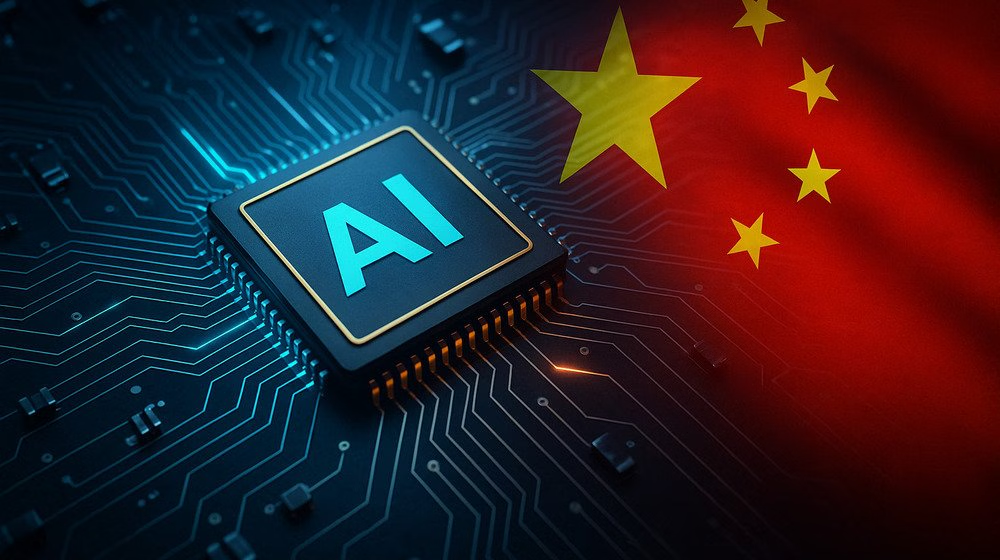A leading Chinese artificial intelligence company, DeepSeek, has come under sharp scrutiny from the United States over allegations of providing direct support to China’s military and intelligence operations, according to a senior U.S. State Department official who spoke with Reuters on condition of anonymity.
This revelation adds a new layer of tension to the growing technological rivalry between Washington and Beijing, particularly as both nations race to dominate the AI frontier. DeepSeek, which has been recognized for developing some of China’s most advanced generative AI systems, is now accused of operating far beyond the boundaries of commercial use — and stepping directly into the realm of national defense.
Beyond Public AI: Secret Military Ties
The official stated that DeepSeek’s involvement extends well beyond public-facing AI models, hinting at a sophisticated and possibly long-standing relationship between the company and China’s military and intelligence community. This includes not only the potential sharing of data and software capabilities but also development of tools tailored to surveillance, cyber operations, and strategic warfare.
These claims are particularly alarming because Chinese law already mandates that private firms must share data and cooperate with the government upon request. In this case, however, U.S. officials believe that DeepSeek isn’t just complying with state orders — it is allegedly proactively partnering with government agencies, blurring the line between civilian tech and state power.
Bypassing U.S. Restrictions: The Southeast Asia Loophole
Adding to the concerns, the U.S. has also accused DeepSeek of attempting to sidestep American export restrictions. According to intelligence assessments, the company has been using shell corporations in Southeast Asia to illicitly acquire high-end semiconductors — particularly GPUs and chips necessary for training and scaling large AI models.
These components are critical for powering next-gen AI technologies, and the U.S. has restricted their sale to China under a series of sanctions designed to prevent the Chinese military from gaining access to hardware that could enhance its offensive and defensive capabilities.
This is not just a matter of dual-use concerns, the official emphasized. We are increasingly convinced that DeepSeek’s rapid expansion was fueled by access to restricted U.S. technology, despite the export controls that were meant to slow that very progress.
AI Nationalism or Dependency?
This report also calls into question the broader claims made by Chinese AI companies regarding technological self-reliance. While companies like DeepSeek boast about local innovation and breakthroughs, U.S. officials suggest these advancements may be significantly dependent on U.S.-developed components, intellectual property, and infrastructure.
There is a false narrative of independence, the U.S. official said. What we are observing is more akin to a hidden dependency wrapped in nationalist marketing.
International Implications and Ongoing Surveillance
Washington has made it clear that DeepSeek is now under active surveillance, along with other Chinese tech firms suspected of engaging in similar violations or posing national security risks. The State Department, along with the Department of Commerce and intelligence agencies, is considering new rounds of sanctions or blacklisting to curb the misuse of American technology in foreign military systems.
The latest developments come at a time when the U.S. is tightening its regulatory framework around AI and chip exports, while also trying to rally allies to adopt parallel restrictions to close loopholes exploited via third countries.
Broader Tech Cold War
DeepSeek’s case is emblematic of the broader tech Cold War between China and the United States — a high-stakes race not only for economic dominance but also for military and strategic superiority. The ability to develop and deploy cutting-edge AI is now considered a cornerstone of national power.
With AI rapidly transforming warfare, espionage, and cyber defense, the stakes have never been higher. U.S. policymakers and analysts increasingly view companies like DeepSeek not just as business ventures, but as potential national security threats embedded within the global tech ecosystem.
As investigations continue and pressure mounts, DeepSeek’s reputation as a rising AI star is now clouded by international suspicion. If proven true, these allegations could have serious consequences, including sanctions, bans on international partnerships, and tighter scrutiny of AI exports worldwide.
For now, the world watches closely as technology, power, and politics converge — shaping a future where AI is no longer just an innovation tool, but a strategic weapon in the hands of those who control it.



